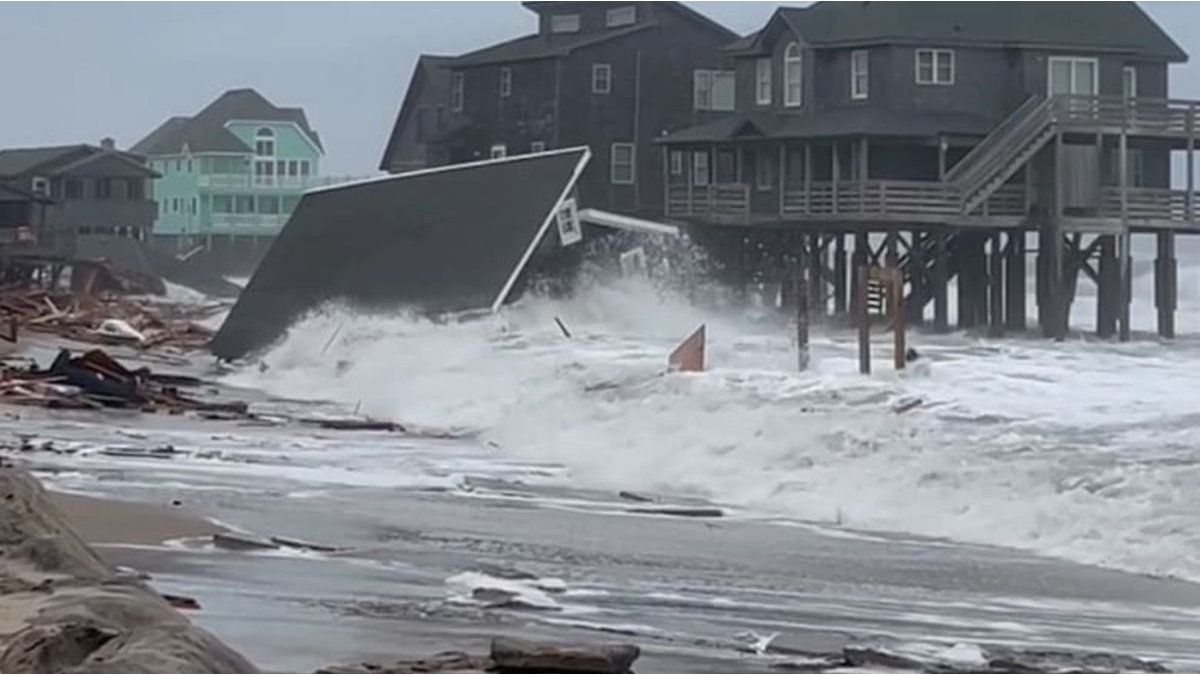Commission President Ursula von der Leyen on Wednesday presented a plan to move away from fossil fuels from Russia and accelerate the energy transition.
“We must reduce our dependence on Russia in the energy sector as quickly as possible,” von der Leyen said. This requires significant investments and reforms. “We are mobilizing up to 300 billion euros for this purpose.” The plan will help save energy, accelerate the phase-out of fossil fuels and stimulate investment. “This will ignite the turbo for our European “Green Deal”, said von der Leyen. The aim is to stop buying energy from Russia within the decade.
Video: ORF correspondent Raffaela Schaidreiter reports from Brussels on the EU plans for energy security
This video is disabled
Please activate the categories Performance Cookies and Functional cookies in your cookie settings to view this item. My cookie settings
Von der Leyen proposed increasing the EU’s energy saving target for 2030 from 9 to 13 percent. She also proposed increasing the target for the share of renewable energy in the EU from 40 percent to 45 percent by 2030.
To achieve this, the Commission wants, among other things, to shorten the approval process for renewable energy projects, introduce a solar roof requirement and import more climate-friendly hydrogen. In addition, investments are to be made in infrastructure – in electricity networks, but also in gas and oil pipelines. Countries like Hungary, which are particularly dependent on Russian oil, are to receive a total of up to two billion euros to get rid of it.
The approximately 300 billion euros are to consist largely of loans and grants. Many of the proposed measures still need to be negotiated with EU countries and the European Parliament.
Nine billion euros for Ukraine
In addition, the EU Commission wants to help Ukraine in the short term with up to nine billion euros. The Brussels authorities announced on Wednesday that they are proposing loans for this year. The EU countries should give additional guarantees. Payment is planned in several tranches, with a long term and preferential interest rates. In the longer term, a reconstruction program is planned, in which the EU, according to its own estimates, is likely to become the largest donor.
“Ukraine can count on the full support of the EU,” said Commission President Ursula von der Leyen. The country had been devastated by the Russian attack in recent months. The EU will play a leading role in reconstruction. Investments would go hand in hand with reforms to tie Ukraine closer to Europe. According to the EU Commission, the main focus should be more rule of law. The fight against corruption in the country should also be promoted.
EU Commission Vice President Valdis Dombrovskis said the task now was to keep Ukraine and the state apparatus running. According to international estimates, this requires around five billion euros per month. The exact distribution of short-term aid will also be a topic at the meeting of finance ministers from the seven leading industrial nations (G7) in Bonn on Thursday and Friday. According to German government circles, a financial package worth a total of 15 billion euros is to be put together there.
An international platform is to be set up to coordinate the long-term reconstruction of Ukraine. The Commission proposes a dedicated EU-funded instrument for the European contribution. During the corona pandemic, the EU launched a €750 billion recovery plan. However, the FDP-led Ministry of Finance in Germany rejects renewed joint borrowing in the EU.
According to its own statements, the EU has mobilized more than four billion euros for Ukraine since the Russian attack at the end of February. The country lost most of its tax revenue and exports as a result of the war.
Source: Nachrichten




